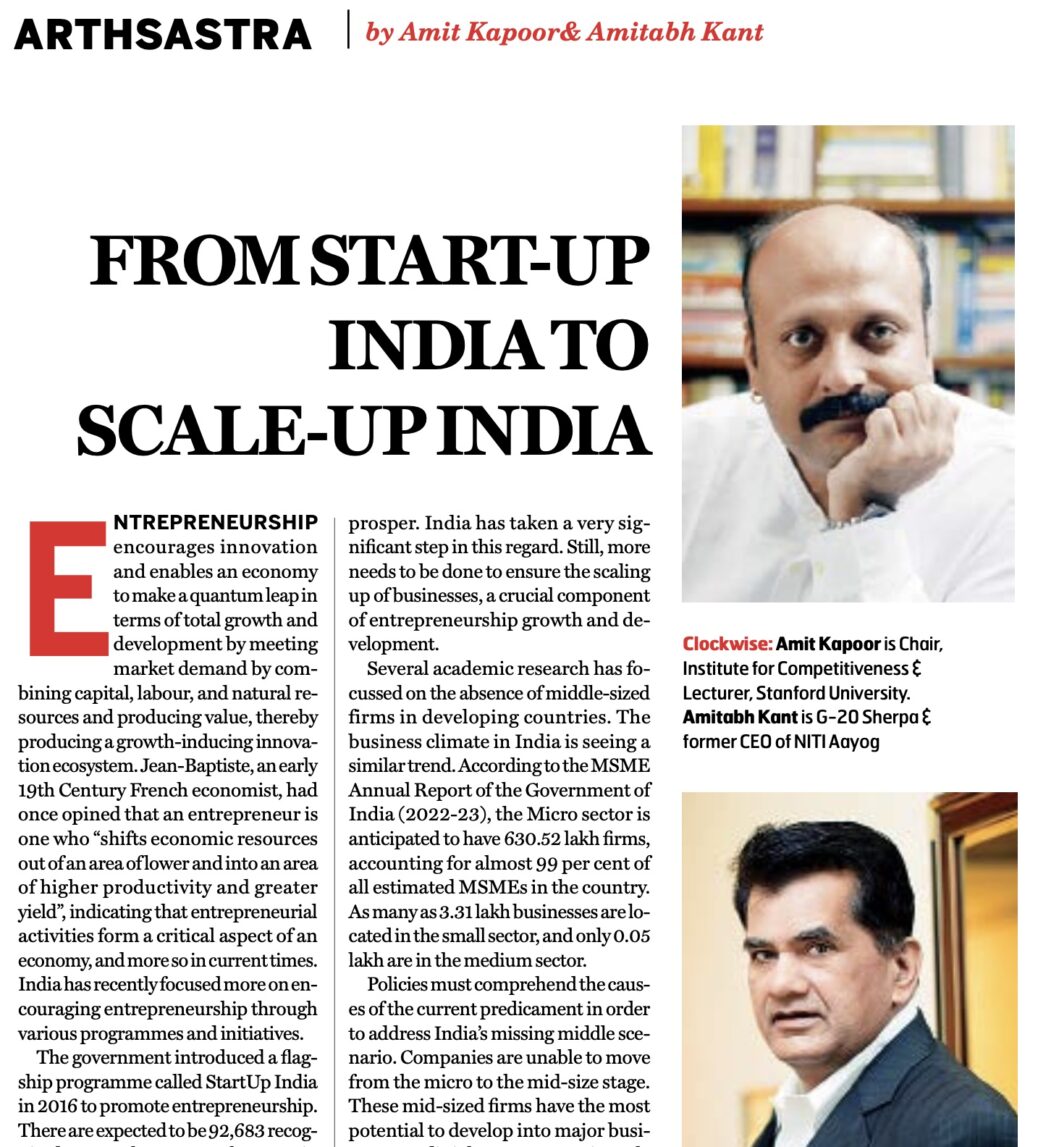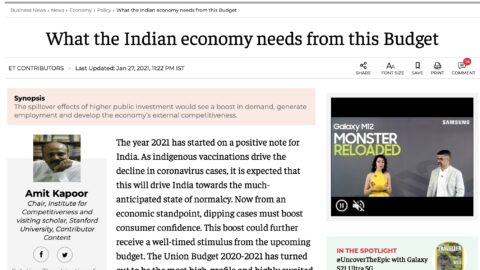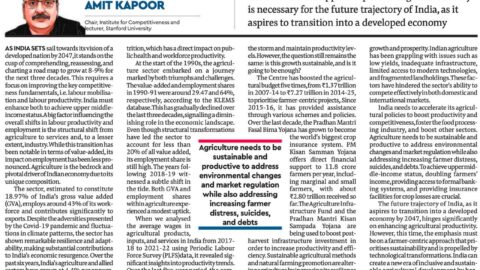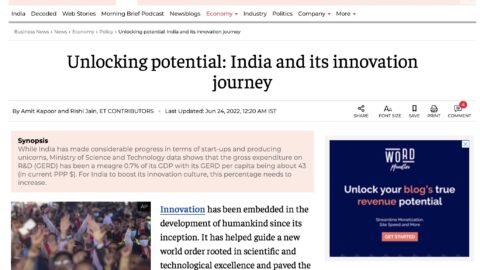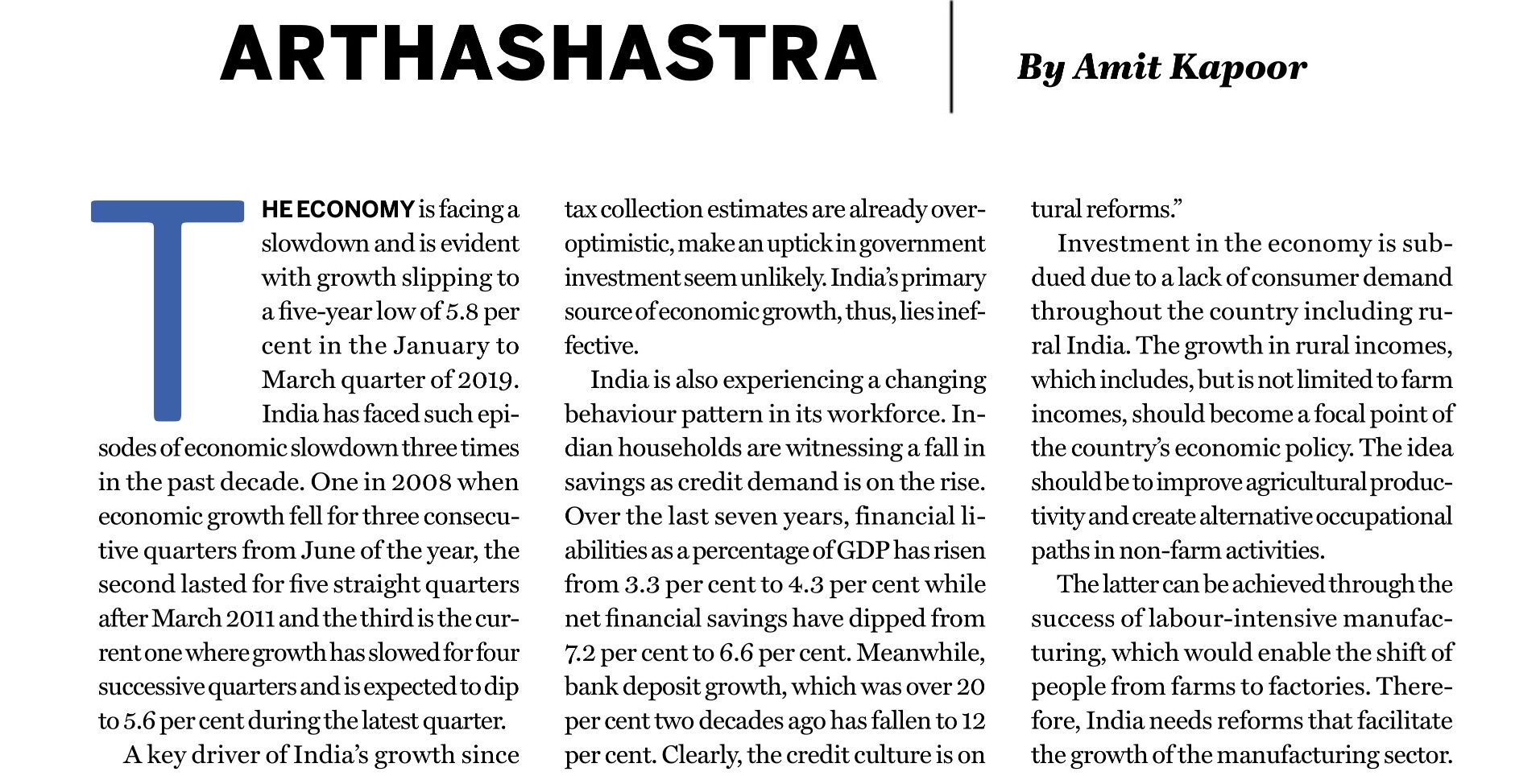Amit Kapoor & Amitabh Kant
Entrepreneurship encourages innovation and enables an economy to make a quantum leap in terms of total growth and development by meeting market demand by combining capital, labour, and natural resources and producing value, thereby producing a growth-inducing innovation ecosystem. Jean-Baptiste, an early 19th-century French economist, had once opined that an entrepreneur is one who “shifts economic resources out of an area of lower and into an area of higher productivity and greater yield”, indicating that entrepreneurial activities form a critical aspect of an economy, and more so in current times. India has recently focused more on encouraging entrepreneurship through various programmes and initiatives. The government introduced a flagship programme called StartUp India in 2016 to promote entrepreneurship. There are expected to be 92,683 recognised start-ups by 2023, up from 442 in 2016 in the country. The importance of funding entrepreneurs has also been emphasised in recent years. The StartUp India Seed Fund Scheme, which was started in 2021, saw the approval of Rs. 477.25 crores for 133 incubators. It is clear that focused and coordinated efforts are being made to foster an environment where entrepreneurs can prosper. India has taken a very significant step in this regard. Still, more needs to be done to ensure the scaling-up of businesses, a crucial component of entrepreneurship growth and development.
Several academic research has focussed on the absence of middle-sized firms in developing countries. The business climate in India is seeing a similar trend. According to the MSME Annual Report of the Government of India (2022-23), the Micro sector is anticipated to have 630.52 lakh firms, accounting for almost 99% of all estimated MSMEs in the country. 3.31 lakh businesses are located in the small sector, and only 0.05 lakh are in the medium sector. Policies must comprehend the causes of the current predicament in order to address India’s missing middle scenario. Companies are unable to move from the micro to the mid-size stage. These mid-sized firms have the most potential to develop into major businesses. India is home to approximately 600 significant enterprises that are 11 times more productive than the average and contribute almost 40% to overall exports, according to a report by the Mckinsey Global Institute titled “India’s turning point” (2020). The importance of increasing the number of large enterprises in the country cannot be overstated if we are to achieve our development goals. A micro corporation must overcome a number of obstacles, including limited access to capital, a reduced ability to do considerable R&D, limited market access, and difficulty with technical advancement, among others. Additionally, small businesses are more susceptible to the damaging effects of unforeseen circumstances. They might not be resilient because they lack the resources to weather an economic downturn.
In this situation, scaling up businesses can aid in giving companies resilience and growth potential. A bigger enterprise can provide more in the way of revenue and can employ a larger portion of the labour force. Scaling up helps businesses adopt newer technologies, gain access to new markets, and streamline production procedures, all of which increase productivity. Based on extensive company assessments, it is crucial to be aware of the challenges micro-organisations confront in their growth trajectories. Simplifying and streamlining the regulatory environment for businesses and fostering access to capital are the two main areas to concentrate on for enhancing the ease of doing business and moving to larger firms. According to the most recent remarks made by finance minister Nirmala Sitharaman, over 39,000 compliances have been reduced, and over 34,000 law provisions have been decriminalised in order to facilitate ease of doing business. It is well recognised that a heavy regulatory load deters businesses from expanding, making it desirable for them to remain smaller and beyond the purview of the official system. But the government is encouraging a shift in perspective from seeing starting a firm as a challenging task to a relatively straightforward one. The goal has been to eliminate hesitancy among business owners and instil confidence in them so they can expand their operations.
Making sure that the programmes created to support the growth of micro and small businesses are adequately executed is a significant responsibility. Additionally, a number of initiatives have been made to make it easier for businesses to acquire credit, particularly those who have resisted using the formal credit system because of obstacles such as absurdly high interest rates and onerous collateral requirements. The Udyam Assist Platform is a good example of this because it works to formalise unofficial Micro Enterprises so they can benefit from Priority Sector Lending. PM SVANidhi (PM Street Vendor’s Atmanirbhar Nidhi), which offers financing to small business owners like hawkers and street vendors, is yet another noteworthy programme. The foundation of the economy is MSMEs. They hold the potential and dreams of millions of Indians.
The article was published with Business World on June 1, 2023.

